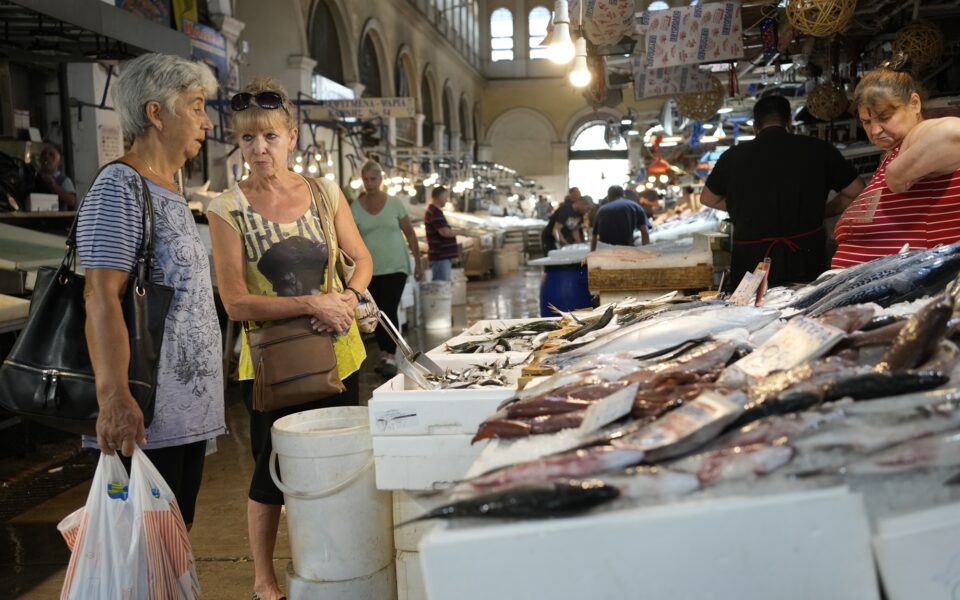Do those taking profits out see something ahead?

At first, prices were under pressure due to the gradual rise in energy prices starting in mid-2021. Then, the situation was exacerbated by Russia’s invasion of Ukraine, leading to the known problems in raw materials and supply chains.
In Greece, the problem was dealt with the same way as everything else: with indifference.
The government was content to repeat with relief that inflation is “imported” (after all, all of the problems in this country are either imported or caused by bad-faith populists) and lavishly distributed handouts to everyone.
Observing the situation, the market – which in our case has become accustomed to working with high profit margins the likes of which you do not find in any other European country – concluded that it is a shame to let such a crisis go to waste, particularly since, instead of being controlled, it was being subsidized.
Thus, the imported inflation quickly mutated into profit inflation or, as the term was internationally established, “greedflation.” Greek businesses took advantage of rising import prices to expand their profitability. For many months, the prices of food and other necessities ran higher here than in Western Europe, although in Greece the prices of many, many goods were presumably already higher.
According to the state budget, last year investments were expected to increase by 15.5% – they rose by just 7%. This year they are forecast to rise 15.1% – and that’s uncertain
A huge redistribution of wealth is taking place: In the Greek “Eldorado,” in deviation from the 27 European Union member-states where wages and profits follow an almost parallel path, the gap is widening. The wage share is shrinking (it is the second lowest among the 27) and the profit share is swelling (the third largest of the 27). In addition, we have two very different euros: a very cheap one, that of the small-scale depositor, and a very expensive one, that of the banks.
On the one hand, there is an image of abundant money from skyrocketing profits, increased government borrowing, inflationary tax revenues and the rapid use (without social criteria) of resources, especially from the EU Recovery Fund, which creates a “magical picture” of growth – although gross domestic product is smaller and the debt much higher than it was 15 years ago, when the debt crisis began.
On the other hand, there is reality: Despite the unprecedented increase in profits and the incredible amount of money circulating, investment activity is lagging. According to the state budget, last year investments were expected to increase by 15.5% – they rose by just 7%.
This year they are forecast to rise 15.1% – and that’s uncertain. Besides, whatever relatively large investments are made, they are made with money from the National Strategic Reference Framework and the EU Recovery Fund, with only a small participation of private interest in the capital.
What happens to all those profits, besides luxury consumption? They are invested abroad. The increased profitability achieved in Greece thanks to earnings inflation, anemic competition and wage deflation finds its way abroad. Thus, Greek direct investments abroad, from 1.1477 billion euros in 2021, increased by 121% and reached €2,538.5 million in 2022 and, last year again, increased by another 28% and reached €3.2404 billion. In other words, within three years, the profits that are exported have almost tripled. Do they see something ahead?





